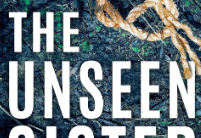When I was young TokyoPop was one of the top publishers of manga in the US. They ate up IPs for manga. They published a huge variety of genres. They even published light novels, something that many other publishers, even those who did publish manga, largely didn’t touch. A great many TokyoPop titles still grace my shelves. My local library still has dozens of TokyoPop releases in their manga section. By all regards TokyoPop was extremely important in getting manga into the hands of my generations.
And that’s why this hurts so much. TokyoPop rightly deserves a lot of credit for bringing manga to the US in a time when it wasn’t always an easy sell. However, there is a reason why they decided to close their North American publishing branch in 2011.
I have always had some issues with the manga they released. No one issue in particular has ever proved that egregious. There are no earth shattering ‘this is completely unreadable’ moments in any of their work. Largely, TokyoPop’s manga feels rushed to print, as if the editor, translator, and proofreader were simply too busy, looked all the red marks still lingering in their pdf file and said ‘eh, no one will notice’ before simply sending everything off to the printer anyway.
When I was younger, one of the most frustrating things I constantly came across was having a short preview of the next volume in a manga I was reading only to find that the translators never bothered providing any of the text in English. This was utterly maddening. Now that I’m older, I can understand why this might have happened as frequently as it did. Publishing a series can be delicate things, and if a franchise isn’t selling the next volume may never appear, especially fifteen years ago. But then why include a preview at all?
Still, that was in the past.
Despite the North American branch effectively closing several years ago, a few new titles have appeared under the TokyoPop label in the US. Some of these manga are fairy tales that appear to be published in conjunction with Disney. These I haven’t read. What I have read are the brand new manga franchises TokyoPop has published. The few that there are all seem to be by indie mangakas, two of which I’ve read so far. But the specific manga I want to talk about today is Goldfisch by Nana Yaa.
Goldfisch is, by all accounts, a very good shonen title. It is a series I fully intend to continue with, and one whose praises I want to sing. I haven’t posted an full review of this manga yet, partially because I just need to get the frustration at it’s treatment by the publisher out first. Like so very many of their earlier publishing ventures, Goldfisch suffers from downright stupid, easily correctable mistakes and an English translation that, at times, provides only the barest minimum.
No excuse can be made for misspelling the main character’s name. The two r’s in Morrey inexplicably change to one r on page 148. Why? This isn’t the only proofreading error, but it is certainly the most noticeable and the least forgivable. Other proofreading faux pas might be explainable, but are still unacceptable. One vs on is something which can be easily missed during a quick scan of the text. But a professional publication shouldn’t only receive a cursory glance before heading to the printer. And to misspell the main character’s name? That’s simply gross negligence. This manga – every manga – deserves better.
The odd choices in translation also continue from TokyoPop’s earlier days. The title, Goldfisch, remains untranslated. In itself, this isn’t anything to raise an eyebrow at. There are plenty of titles from this publisher and others which are never translated into English. In fact, it can be argued that this one doesn’t even need a translation. What’s one letter’s difference, after all? Yet, this is a nickname that Morrey, the main character, is called on a fairly regular basis. It is a word that pops up often. And, when the ‘fish’ part is referenced, it remains in German as well, reading as ‘fisch’. Not my first choice, but fine. I’ll allow it.
When things get awkward is when the term ‘fail day’ appears early on in the manga. Now, my German is rusty but I have a few ideas on what the original word might be, and not all of the possibilities have direct translations. Absolutely no attempt is made by the publisher to localize the translation. Sure, inferences can be made. English speaking readers know what the character means. But it sounds odd, stilted. A better phrase could be found, but no such action was ever taken, leaving the dialogue just feeling off.
And that’s a shame because this series is very, very good. It hold’s its own against any of the larger, more famous shonen I own. It’s a series I’m sticking with for the long haul and plan on buying in two languages – both English and German. The mangaka is one I’ve started following more closely, and I hope to read further series from her in the future. While it’s nice that TokyoPop is publishing anything at all here in North America, I can’t help but wish they’d done it more justice. These are the same sort of things that plagued TokyoPop’s prior English releases. No one book may be perfect, and people will always have differing opinions on what the best translation is, but there are only so many times you can say ‘well, it’s just a mistake’ and simply forgive the publisher.
I thought things would change. I thought that, just maybe, TokyoPop would put out better quality manga now. Unfortunately, that still seems to be a pipedream. They are still the ‘death of a thousand cuts’ publisher that I knew in my childhood. No one action, or inaction, is overly egregious. All missteps fall into the realm of lazy to just plain careless. But that is the very reason why this is so utterly infuriating.
Why bother publishing great titles when you simply don’t care? Why make the same mistakes a second time? Why not strive for better when a second chance for this branch of TokyoPop appeared? It is utterly maddening to witness the same egregious negligence occur a second time, and so here I am, screaming into the void.
I have always wanted to purchase the original language versions of manga that TokyoPop has treated with less than stellar attention. Not being able to read Japanese makes this impossible. Goldfisch’s original language is German, however, and that I can read. I’m more than a little rusty with my German skills, so the going will be slow, but I’m honestly considering simply buying the original German version of all the volumes. I can’t help but feel that this will be a much better publication. After all, TokyoPop never went out of business in Europe. While I may not be overly familiar with the reasons or the manga market overseas, I would like to believe that branch of TokyoPop takes much better care of its titles.






Post a comment